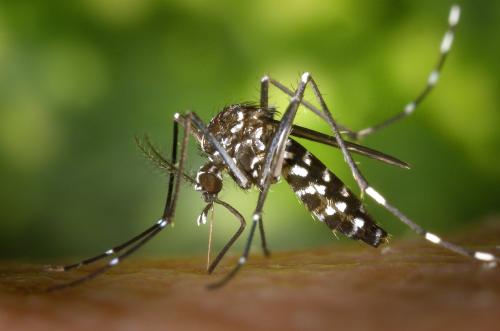Types of Mosquito Repellents

The majority of searches online will involve mosquito repellents although obviously insect repellents will include a much broader field to include cockroaches, flies, ticks, bees, wasps, beetles, ants, scorpions. In fact, a good estimate is that there are over 1 million different species of insects in the world. It is estimated that for every human on Earth there are 1 million ants alone! With all the other insect species it is considered that a square mile of the countryside will contain as many insects as the world's population of humans – and all over the world insects manage to consume 1/3rd of our food crop.
So control of insects is not just about a tropical holiday or outside barbeque being blighted by buzzing mosquitoes.
However, let’s look at those mosquitoes and the ways of stopping them being not only a nuisance but, in some instances, an actual danger.
The following is a list of popular types of control by pestcontrolhacks with a note on their proven effectiveness other pros and cons as we see them.
Certain foods, drink and vitamins. A visit to the web researching such matters as Vitamin B1 being an effective mosquito repellent will undoubtedly leave you slightly bewildered as to how far apart opinions are. Some contributors claim a life changing experience in the affirmative whilst other, apparently more learned views from University sponsored research pours cold water on all the theories. This negative view includes garlic, Marmite and bananas.
Wristbands and sonic devices. Advocates for and against these products seem to be equally split but once again the more learned and properly researched opinion discredits any claims of reliable mosquito repelling effects.
Fumes. Whether from a mosquito coil or a scented electric plug-in you will still need to be within the fume filled area for any effect – and safe as we are told this is, given a choice it still doesn’t seem a good idea to actually inhale anything but fresh air.
Chemical (DEET) based repellent lotions, gels and sprays. Despite use, for over 50 years there are still questions as to the safety of these products. That they work in repelling mosquitoes is beyond doubt, but the fact that DEET is a solvent capable of melting plastic sunglasses or ruining polished surfaces does make one wince at the idea of applying it to your skin. All DEET products must carry a warning about over application but we have struggled to find a coherent message as to exactly what that level is.
Natural ingredient based repellent lotions, gels and sprays. Now we could be getting somewhere here. Until some of the more recent arrivals on the scene, the criticism has always been the longevity of their effectiveness. This used to be as short as a few minutes to maybe half an hour as with Citronella. However a new crop of blended natural repellents are proven to last several hours (comparable with most 30% DEET products), and they have the added advantage of being safe to apply as often as you like with no such thing as over application.
A note of warning though for all those thinking of concocting their own natural repellent. There are some natural poisons out there as well the good stuff – so be careful what you choose.
Physical Barriers and Actions. This is something we know works well…from actually swatting the targets to bed-nets and screens for windows and doors. You can also cover up your body as much as possible but remember they will still probe through skin tight clothing. Clothing can further be enhances by spraying or washing in certain products – normally containing ‘permethrin’.
One thing that has become apparent when it comes to personal repellents is that ‘one size does not fit all’ as they can work for some but not for others. We hope this helps and ‘Good Luck’ in finding what works for you.
Post Your Ad Here
Comments